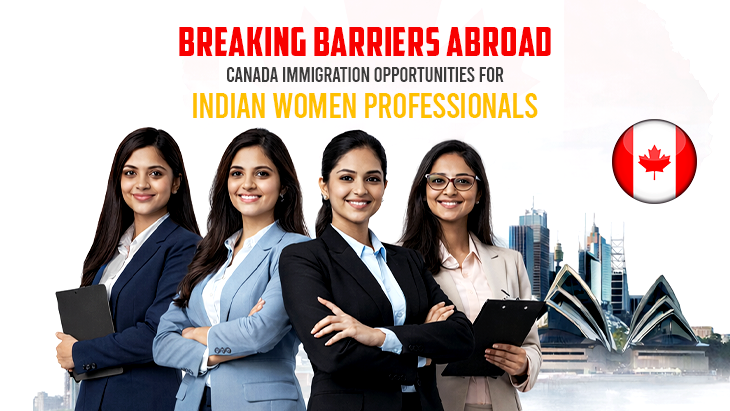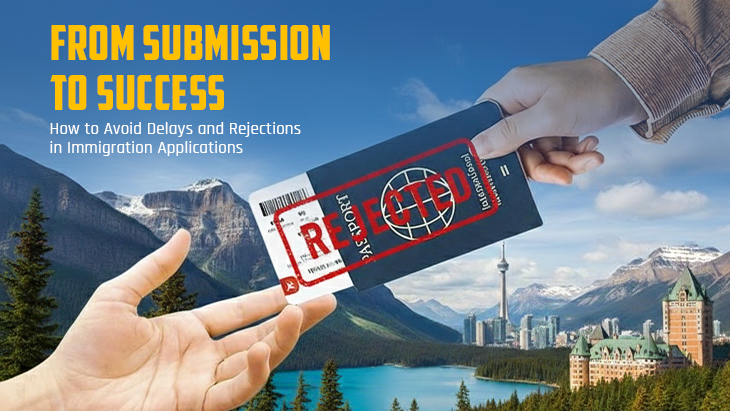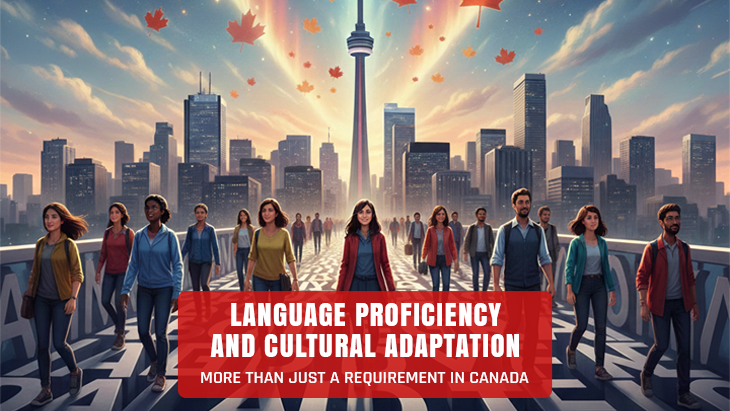Canada's Startup Visa is for qualified immigrant entrepreneurs one can also use Canadian permanent residence. The program aims for innovative entrepreneurs and links them with private sector investors in Canada who will help establish their startup businesses.
Canada Immigration Today allows candidates to initially come to Canada on a work permit supported by their designated Canada-based investor. Before qualifying for permanent residence, this can be done once their business is up and running.
Essential Requirements for the Startup Visa (SUV) In 2022
1. Qualifying business
2. Commitment Certificate and Letter of Support from a designated entity
3. Sufficient unencumbered, available and transferable settlement funds
4. Proficiency in English or French at minimum Canadian Language Benchmark level 5
Admissibility Requirements to Enter Canada
To be eligible for Canada, one must meet the admissibility requirements to enter Canada. These apply to all Start-up Visa Program applicants.
All You Need to Know About Start-Up Visa Candana is that it is open for all, but specific guidelines must be followed. Start-Up Visa Consultant can guide you through the application process.
Canada Immigration Today welcomes innovative business ventures and invites entrepreneurs from other countries to benefit from the strong Canadian economy. The Start-up Visa (SUV) program launched by the Immigration, Refugees and Citizenship Canada (IRCC) targets foreign start-ups. They have the potential to build innovative businesses within Canada that further innovate its entrepreneurial ecosystem.
The process is intended to allow for the expedited migration of foreign-owned businesses looking to operate in Canada. Applicants should consult a good Canada Immigration Consultant for an easy process.
In this process, they provide up to five founders or core team members with a permanent residency, provided that they meet the criteria established. This is under the program and IRCC's standard requirements for immigration.
Candidates may not be able to enter if the CIC officer or ID of IRB determines that they have the following troubles or violations:
1. Security
They have engaged in, or there are reasonable grounds to believe they will engage in, spying, subversion or terrorism, or they belong to organizations that have engaged in, or will engage in, these activities.
2. Human or international rights violations
They have committed war crimes or crimes against humanity. They are senior members or officials of a government that has committed acts of terrorism, major human rights violations, genocide, war crimes or crimes against humanity.
3. Serious criminality
They have, or there are reasonable grounds to believe they have, committed a crime punishable by ten years of incarceration.
4. Any criminality
They have committed an indictable crime, or reasonable grounds to believe they have. They achieve an offence such as possessing or importing narcotics while seeking entry to Canada.
5. Organized crime
They belong to an organization that is believed to participate in organized criminal activity or engage in transnational crimes such as people smuggling, trafficking in people, or money laundering.
6. Health issues
They may be a danger to public health or cause excessive demands on Canada's health or social services.
7. Financial
They are unable or unwilling to support themselves and their dependents.
8. Misrepresentation
They provide officers with false information or withhold information directly relevant to a decision under the Immigration and Refugee Protection Act (IRPA).
9. Non-compliance
They contradict the requirements of IRPA. Some examples include the following:
1. Not having a valid passport or visa
2. Entering as visitors and remaining longer than authorized
3. Trying to re-enter without the written permission of the Minister of Citizenship and Immigration after being deported
4. Working or attending school without the appropriate permit
5. Breaching conditions imposed when they were first admitted to Canada.
What is a Start-up Visa?
1. A designated Investor should support the applicant's business
The applicant must get a letter of support from one designated investor organisation. The letter needs to state that they are going to fund their idea.
2. Language Requirements and criteria
One must have to be able to communicate and work in English, French, or both. They need to provide Immigration, Refugees, and Citizenship Canada (IRCC) with proof of language proficiency. This means that they must take a language test from an IRCC approved agency and meet the minimum language requirements.
3. Prove that their business meets the guidelines
A single business may have a maximum of five owners when they apply for the program. Each applicant must hold at least 10% of the voting rights in the company. The designated investment organisation and the applicants must together own more than 50% of the voting rights in the business.
4. Sufficient funds to reside in Canada
The applicant needs to prove to the Canadian government that they have enough funds to support themselves in Canada. The government does not provide any financial support for entrepreneurial immigrants.
Preparing Your Application Start-Up Visa (SUV)
The first part of the application is an initial assessment and validation of the potential applicants to the SUV program. Please note a small fee for this initial service to cover administration costs. This is not a promise that your application to the Start-up Visa Program will be successful.
An experienced Canada Immigration Consultant can help guide applicants interested in building their startup. The start-up visa process and application are more likely to be done fast-tracked. Their goal is to approve successful applicants within weeks. The Canadian Entrepreneur Visa provides permanent resident status, leading to citizenship.
Eligibility Criteria For Canada Start-up Visa
1. Proof of Support by a Designated Investment Organization
If an individual is interested in immigrating to Canada through the Entrepreneur Start-up Visa program, the first step is to find a Canadian angel investor group.
If not, a business incubator or venture capital fund to back you up. At least one of these entities must be willing to invest in your new start-up. Keep in mind that the investor organisation must be a designated angel investor group, a qualified business incubator program, or a designated venture capital by the Canadian government to participate in the Entrepreneur Start-up Visa program.
Once the applicant submits their idea and convinces one of the designated incubators, angel investor groups, or venture capital funds to support your business, they will send you a letter of support. They also provide the IRCC with a completed Commitment Certificate. The certificate lays out the details of the agreement and commitment between the designated organisation and the candidate.
Once the applicants receive the letter from your investor or investors, they are ready to apply for Startup Visa.
2. The minimum amount one must secure for your business is
1.200,000 CAD if the investment is from a Canadian VC,
2.75,000 CAD if the investment is from an angel investor,
3.0 CAD, that's right, zero, if your business is accepted in a business incubator program in Canada.
3. Proof of Meeting the Minimum Language Requirement
One must be able to communicate and work in English, French, or both. This means that you must take a language test from an IRCC approved agency and meet:
1. Canadian Language Benchmark (CLB) 5 in speaking and listening and 4 in reading and writing in English
2.Niveaux de Compétence Linguistique Canadiens (NCLC) 5 in speaking and listening and 4 in reading and writing in French
4. Proof of Meeting the Education Requirement
One needs to have completed one year of study at a postsecondary institution. And also need to provide transcripts, a letter of good standing, diplomas, degrees, or certificates to show that they fulfil this requirement.
5. Proof of Sufficient Settlement Funds
One must have sufficient funds to support. The amount depends on family size.
Although these are the minimum required funds, it is recommended that you bring in as many funds as possible when you move to Canada.
6. Proof of Security and Medical Clearances
Applicants need to undergo a security clearance and a medical examination.
Application Process
If the applicant meets all the above eligibility requirements, they can apply for Permanent Residency. The processing time takes between 12 to 18 months.
Procedure Or Phrases
1. Draft a Business Plan
One needs to provide a detailed CV for preliminary qualification and the other initial required documents.
2. Letter of Support
At this stage, one needs to have completed the business plan and submitted it to a designated investment organisation. As discussed above, this organisation can either be one of the designated angel investor groups, business incubators, or a designated venture capital fund.














Post Comments